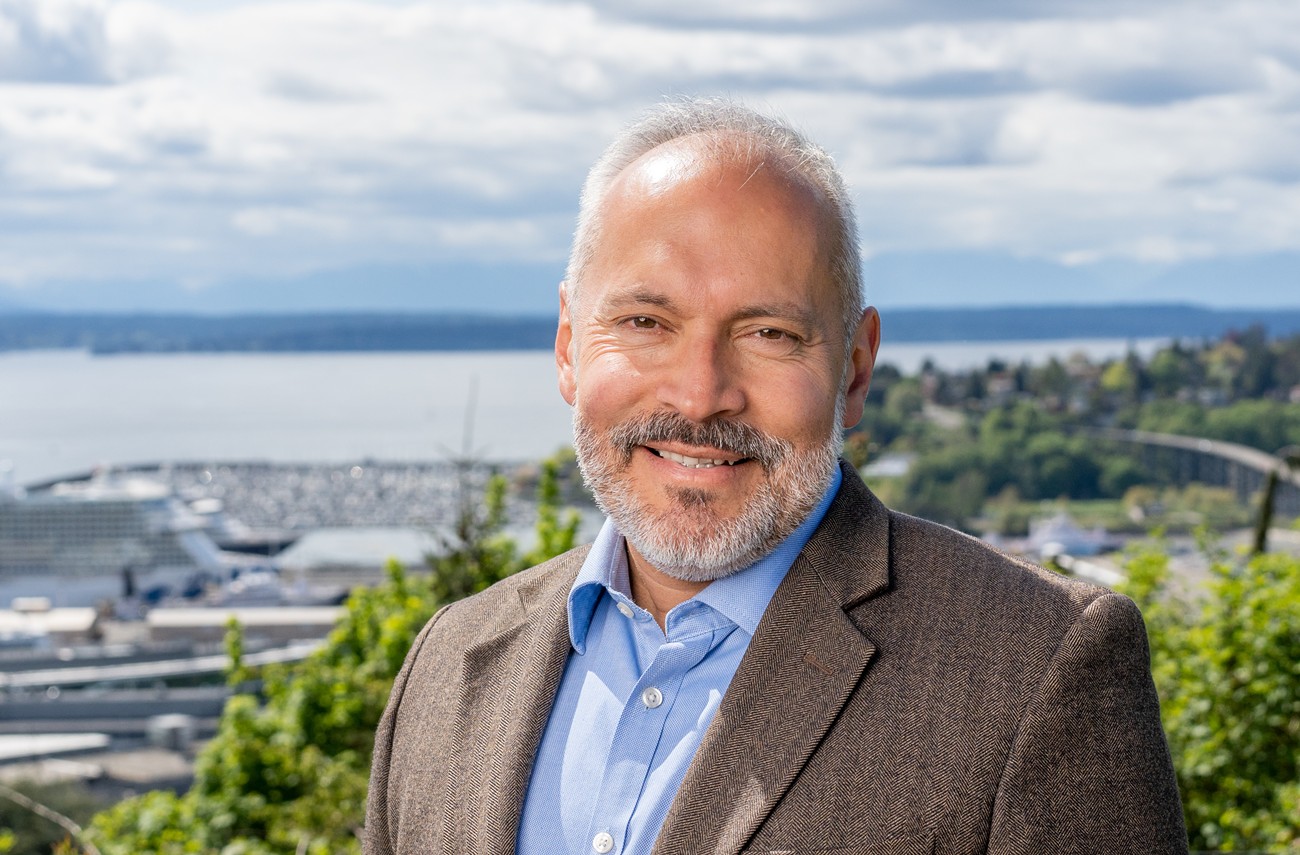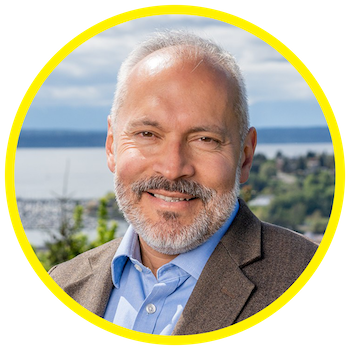Jorge Barón, the longtime executive director of the Northwest Immigrant Rights Project (NWIRP), decided to jump into the now officially crowded race to replace King County Council Member Jeanne Kohl-Welles in District 4, which covers Ballard, South Lake Union, and Belltown.
If voters put him in office, he'd become the first Latino to hold a position on the King County Council. And if voters elect Seattle City Council Member Teresa Mosqueda to the other open seat, then she'd join him as the first Latina. Though Barón isn't coming in swinging with a million endorsements like Mosqueda did, he does enter with her endorsement, plus a nod from Congresswoman Pramila Jayapal, another woman of color who cut her teeth in the immigrant rights arena.
But Barón faces some stiff competition. Earlier this year, Assistant Attorney General Sarah Reyneveld and King County Budget & Policy Manager Becka Johnson Poppe also announced their bids for the seat.
Over the phone, Barón said he jumped into the race much later than they did because he couldn't prioritize campaigning over lobbying the state on behalf of NWIRP, where he'll have put in more than 17 years of work before stepping down next month.
Barón leans on that nonprofit experience as part of his pitch to voters. He's spent most of his career "on the outside," working to push the government to do the right thing, but now, after seeing former president Donald Trump's impact on immigration policy, he feels a renewed sense of urgency about "the importance of having people with lived experience inside government."
His lived experience begins in Colombia, where he was born and raised. At age 13, he came to the U.S. without knowing how to speak English. He'd go on to attend college at Duke and then pick up his J.D. at Yale. In 2006, he started a job as a staff attorney at NWIRP and ended up directing the place a few years later. The nonprofit, which offers legal services to immigrants and sues the government when it violates basic human rights, grew from 36 to 130 employees during his tenure, according to the Seattle Times.
Under his leadership, NWIRP lobbied federal and local governments on immigration policy. He helped to secure more money for immigrant legal services and to detangle immigration enforcement from police departments and jails. On the county council, he'd like to oversee implementation of the immigration stuff the county deals with and push for more legal assistance to help people obtain work permits more easily.
Barón sees investments in immigrant rights as a way to relieve shortages in all sectors, particularly in human services and at King County Metro, which last week announced a plan to cut 4% of bus routes due to staffing problems. "It's so frustrating to have people here who can't get work permits, or they're dealing with delays. We need more advocates to help navigate the process so they can get to work," he said. Getting immigrants the permits they need would also lift them out of the informal economy, where they're vulnerable to wage theft and mistreatment.
Barón also wants the county to pay its workers more to help draw new recruits and reduce turnover. The idea that higher wages reduce the number of people the county can hire and thus contribute to shortages seems short-sighted to him. "In the longterm, higher compensation leads to better services and fewer gaps, so there's a lot of value for tax-payers when you're compensating people who are providing public goods," he said.
In his book, the workers who deserve adequate compensation also include cops, but he doesn't think the idea of hiring more cops "resonates as the answer" to the question of how the county should invest money in preventing crime. "I want to focus resources on solutions that are going to get us more longterm prevention, which means investments in behavioral health, substance abuse treatment, and human services."
He also finds the suicide rate at our overcrowded jails "deeply troubling," and he supports reducing the jail populations to levels that would support adequate care. "It's deeply frustrating, because we’re in this cycle of underfunding things that will help reduce crime, and we're continuing to put resources into areas that aren't going to reduce crime," he said.
Funding for all of the stuff that reduces crime now sits on the chopping block thanks to the county's $100 million budget shortfall. The current council could have helped fill the hole by increasing the human services levy a touch, but Dave Upthegrove, Sarah Perry, and the two Republicans voted against the proposal, a point of frustration Barón mentioned several times on the call. (He didn't name names, but I did.)
He feels a sense of "urgency" around finding progressive revenue streams to pay for everything the county needs, including the aforementioned human services and workforce issues, but also affordable housing, transit, and climate mitigation efforts.
Of course, only the State Legislature can unlock those streams, and so he hopes he can leverage his position on the council to kick the state into gear. "I don’t want to tell people I have magic plan, but we need to elevate the level of urgency around progressive revenue, and we need people who are advocates and who have demonstrated that they can build coalitions to generate new revenues and resources to do it," he said.
The Stranger originally published this story at 7 am on May 16.




















